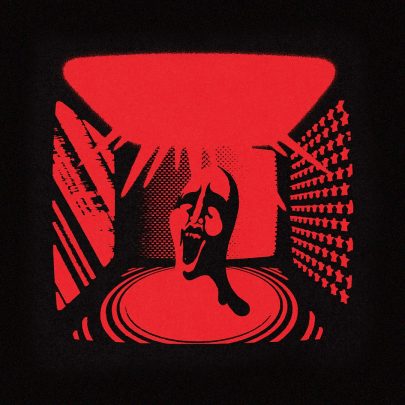Jul 22, 2013 Film & TV
By Frances Morton
Bang! Did you jump? Not likely. But if an unexpected explosion rang out in a movie theatre, you probably would flinch. Something about film short-circuits common sense. Your brain knows action on a screen isn’t real, yet you react physically. It’s this distinction that has drawn Vanity Fair journalist Sebastian Junger towards documentary making. He says it’s complementary to his usual work — written words inform, film is experiential.
“There are situations that are impossible to capture because they move too quickly,” he says. “Particularly combat. You can’t capture that with a notebook and pen.”
I catch Junger on a dodgy international phone line that cuts out as he darts under cover. He’s not in a combat zone, just driving through tunnels en route from Montreal to his hometown New York. He gave up war reporting in April 2011, the day his good friend British photojournalist Tim Hetherington (shown above, left, with Junger), was killed by a mortar strike in Libya.
Junger met Hetherington when he recruited him to photograph the most dangerous US outpost in Afghanistan. Together they made the Oscar-nominated documentary Restrepo, recording a year in the life of the soldiers there. Junger’s second film is Which Way Is the Front Line from Here? The Life and Time of Tim Hetherington, a tender portrait of a dear friend and an insight into the motivations of a foreign correspondent.
Junger has long been drawn to danger. After cutting his leg with a chainsaw while a tree climber in Boston, he turned to writing about them. His first book, The Perfect Storm, about a doomed commercial fishing expedition, was adapted into a film with George Clooney and Mark Wahlberg.
Now he’s using images himself, he says he still approaches storytelling in the same way. “A powerful narrative is a powerful narrative. That hasn’t changed in thousands of years.”
He has a compelling hero in his affable, lanky subject, Hetherington. Using interviews recorded throughout Hetherington’s career and the photojournalist’s own footage, Junger reveals why his mate wanted to illuminate goings-on in terrifying corners of the world such as Liberia, Afghanistan and Libya.
The reasons aren’t always altruistic: an adventurous soul, Hetherington clearly enjoyed his intrepid lifestyle. But there was always a desire to tell the stories of people who live without basic freedoms.
Junger has similar motivations. “I think any person that grows up with some affluence in some stable, calm country understands that with the benefits of that comes some moral responsibility. I certainly feel that way. I know Tim did. I think that’s one of the things that drives some young people to report on other parts of the world where people don’t control their destinies.”
The short step to mayhem is demonstrated in the opening scenes, taken from footage shot by Hetherington in Misrata, Libya. Smiling blokes in a car listen to the Bee Gees warble “How Deep is Your Love” just like any bunch of mates out for a drive, were it not for the rifle wedged between the seats. Then he asks the fateful question, “So which way is the front line from here?”
Agonisingly, Hetherington could have survived had he got the necessary first aid in time. This prompted Junger to set up RISC (Reporters Instructed in Saving Colleagues), a medical training programme for freelance journalists heading into combat areas. The dangers are all too real. James Foley, one of RISC’s early graduates, is still missing after being taken hostage in Syria last November.
Despite the proliferation of images broadcast from conflict zones by citizen journalists on their smartphones, Junger thinks there is still a need for journalists to go to volatile countries and put their lives at risk. “You need to know that this isn’t government propaganda. It is actually someone you can trust. It’s hard to get that from people who are invested in a situation.”
Junger, now 51, may no longer be combat reporting, but he hasn’t given up danger entirely. He is now working on a new documentary and a book — on something he says is top secret. And illegal.
Which Way Is The Front Line From Here? The Life and Time of Tim Hetherington Rialto, July 23, 4.45pm; Rialto, July 24, 8.30pm; The Civic, July 27, 11am.
First published Metro July/August 2013





